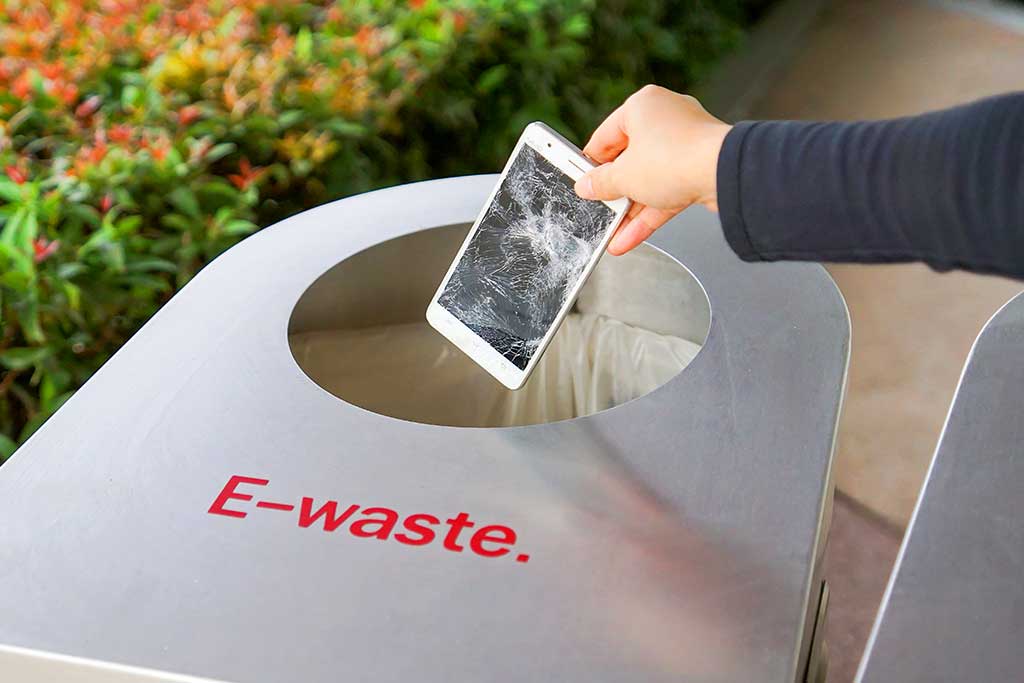Insights
From renting mobile phones to hiring dresses: the rise of the rental economy
5 minutes
22nd January 2024
Share this article:
The idea of renting items is spreading through different industries, across both start-ups and established players, allowing consumers to rent everything from mobile phones to wedding dresses.
In the world of retail, for example, H&M has opened its own rental service, and even giants like IKEA are experimenting with a rental model.
While, many of us will have rented accommodation or a car, it’s also a model that has come to the world of technology and entertainment.
Increasingly, we now rent or subscribe to software, movies and music, aided by the growth of the cloud and streaming.
Research from Deloitte suggests that 73% of UK consumers have access to a video streaming service subscription like Netflix, and 48% have access to a music streaming service like Spotify. And often we no longer own the software we use – instead we rent it on an ongoing basis.
UK consumers are spending as much as £277 per month on renting and subscribing products, with 40% choosing to rent because of the flexibility it provides and 31% more likely to rent because it is better than the environment.
Rental options for businesses and the public sector
Organisations also have many options to rent and lease everything, from heavy industrial equipment to the tech they use every day.
Some rental options are specific to some industry sectors. Foodstars, for example allows UK restaurant businesses to rent commercial kitchen space, sometimes known as ghost kitchens.
Other options are more widespread through every sector, particularly in the area of technology and software where organisations can rent software, hardware, mobile devices, even space on communication networks.
Or choose to ‘rent’ and outsource the necessary expertise to implement, manage and get the best out of different technologies.
Renting tech and device-as-a-service
There are numerous ways to subscribe to technology delivered through a cloud delivery model. An organisation can subscribe to software-as-a-service (SaaS) or platform-as-a-service (PaaS).
But also to analytics-as-a-service, unified communications-as-a-service and a range of other services. But the rental model isn’t just about software. It’s also available for mobile devices, laptops and other hardware, offering IT functions potential value from the convenience, flexibility and usage-based costs of the rental model.
We offer device-as-a-service, where organisations can rent out the very latest mobile tech. Employees get immediate access to brand new phones, all without the substantial up-front investment that is normally required.
The pressures facing UK organisations
Currently UK organisations face a series of competing pressures, which can mean making decisions isn’t always straightforward.
The cost-of-living crisis and high inflation has meant we’ve all had to manage our costs. When we surveyed UK organisations in 2023, rising costs was cited as both the most concerning internal and external business challenge.
At the same time, our research found that organisations also wanted to invest in the latest technology to avoid being held back by their legacy systems.
They also felt that they needed to consider sustainability and other environmental, societal and governance (ESG) commitments that also sometimes require investment. Overall, 92% agreed that these competing factors made 2023 somewhat of a balancing act.
Understandably, senior leaders want certainty and predictability in their budgets, but also want to remain flexible to support their operations and navigate the challenges of an unpredictable business environment.
Why mobile phone renting is proving so popular
The rental model can keep costs more manageable and predictable. For example, with our device-as-a-service: there is no initial investment required and with flexible and innovative financing options it means budgeting for mobile technologies can be moved from capital expenditure (CAPEX) to operational expenditure (OPEX).
Flexible financing options are also helping to make the rental model more attractive. Within the wider tech industry, for example, residual value financing is helping to reduce leasing costs.
When devices or equipment are finished with at the end of the leasing term and service agreement they are returned to the original lender, allowing for their ‘residual value’ at this stage to be removed from monthly payments. This is a popular option with our customers that can lead to reduced costs.
But while costs are more manageable, it also means your employees are gaining access to the latest mobile tech which can operational efficiency, innovation, better customer service, new ways of working and more.
Meanwhile money saved can also be reinvested into other products and services that help keep your workforce connected, productive and safe, with advanced security products or additional collaborative tools.
There are other benefits too, including the convenience of a managed service which saves the hassle of preparing devices and where the automatic replacement of devices is done for you.
And a rental model also supports more flexibility and agility in our fast moving and unpredictable world. If your organisation is hiring more people, for example, you can simply rent more devices.
Opportunities for device recycling
Renting mobile devices not only provides flexibility and convenience but it also contributes to environmental sustainability. By renting instead of purchasing, devices can be recycled or repurposed once their rental period ends, reducing the amount of electronic waste that ends up in landfills.
Our research found that 54% of consumers say a company’s commitment to ESG issues impacts their buying decisions.
And as environmental reporting and net zero targets rise in importance, opportunities such as device recycling may come even more under the spotlight from employees, consumers, and regulators.
The rental economy is here to stay
Analysts suggest that the rental economy is not a passing trend, with multiple market forecasts predicting more growth.
UK car rentals are forecast to grow at a compound annual growth rate (CAGR) of 13.7% each year between 2023 and 2030.
The global mobile rental market is expected to grow with a 11.6% CAGR over the same period.
And the global software-as-a-service market is forecast to grow even faster, with a hefty 18.7% CAGR.
Looking to the future
The rental business model is well established and forecast to do well for the future. It’s growing opportunities for innovation, supporting agility, helping the environment, and stimulating the rise of new models of service delivery.
In our next post we’ll be looking in more detail at one of these: ‘everything-as-a-service’.
Want to know more about device rental and our Device-as-a-Service solution?
Want to speak to one of the team?
call 0800 064 3790




